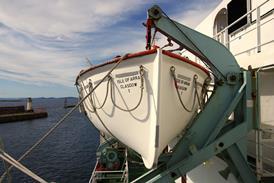Isle of Wight Pension Fund is considering setting its own policy on social, environmental and ethical factors to be considered when making investment decisions, after the council took back responsibility for public health.
Last week, the Law Commission issued a report recommending trustees could take into consideration environmental, social and governance issues when making investments, but said that “non-financial” or ethical considerations could only be a factor if members shared the same concerns.
The £426m scheme’s statement of investment principles states its “committee recognises that social, environmental and ethical considerations are among the factors which investment managers will take into account, where relevant, when selecting investments for purchase, retention or sale”.
As we have taken back public health there’s a question over whether we should be making more of our public health duties as a pension fund
Jo Thislewood, technical finance officer
Jo Thistlewood, technical finance officer at the Isle of Wight County Council, said the scheme’s asset managers have their own policies on social, environmental and ethical considerations, and the committee delegates them to act accordingly.
Local authorities took over responsibility for public health from the NHS in April last year under the Health and Social Care Act 2012, and the scheme is considering reviewing whether its investments have a positive public health impact.
“As we have taken back public health there’s a question over whether we should be making more of our public health duties as a pension fund,” Thistlewood said.
The issue was raised by a trade union representative of the fund’s committee and will be raised at its meeting this week, according to the minutes of the committee’s May meeting.
The committee has not previously considered setting its “own, direct policy” on these issues, said Thistlewood. Such a policy could impact the fund manager selection process, she said, adding: “Their process may not necessarily fit with our requirements for public health, for example.”
Karen Shackleton, managing director at AllenbridgeEpic Investment Advisers, said pension committees should have a clear fiduciary duty to ensure they are delivering the best risk-adjusted returns for members, before any other considerations.
She said that in her experience the issue of ESG does get raised but usually from a council perspective, adding: “There have been several council opinions that say that factors like that can only be brought to the investment strategy where there is no impact on the return with investing in a different asset or different type of stock.”
Fiduciary duty v ESG
The Law Commission last week released a guide for trustees clarifying their fiduciary duties in regard to responsible investment.
Jane Samsworth, head of pensions at law firm Hogan Lovells, said: “It remains the fact that the foremost consideration for trustees when they’re making investments is acting in the best financial interests of members.”
Trustees can make investment decisions based on ethical considerations, which may deliver a less than perfect member outcome, in limited circumstances, Samsworth said. “When they have every reason to believe that the membership shares their moral compass,” she said, adding that this decision must not damage the member outcomes.
Isle of Wight will discuss setting up a working group to review all of its polices over the next 12 months, at its next committee meeting.
The scheme identified areas of its governance ripe for improvement earlier this year, after undergoing a health check by consultancy Hymans Robertson in preparation for next year’s reforms to the sector.
Local government pension schemes will have to make significant changes to their governance arrangements from April 2015 – including setting up a separate pensions board – under the Public Services Pensions Act 2013.

























